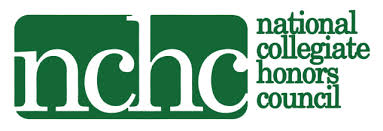Indigenous Peoples and Biopiracy
Seminar - UHON 301
Instructor(s): Yolanda Teran
Course Description
Since millennial times, Indigenous Peoples have been the guardians of Mother Earth and all her ecosystems through balanced and harmonious relationships. All her beings are sacred, interlinked and interdependent. The traditional knowledge associated to genetic resources has been transmitted intergenerationally through oral teachings. New development where the focus is economical, the natural and free service of traditional knowledge was become distorted. For decades now, several developed countries are using the genetic resources from lands and territories of Indigenous Peoples without their free, prior and inform consent. These resources are used to elaborate various products such as pharmaceuticals, cosmetics, among other products and sold on local, national and international markets. Annually, pharmaceutical and companies receive millions of dollars as profits from these sales. However, these companies neglect to share the benefits with indigenous Peoples in a fair and equitable way. The misuse of Indigenous Peoples genetic resources and associated traditional knowledge to these resources is happening worldwide. The United Nations’ Convention on Biological Diversity and the Nagoya Protocol are two international instruments created to stop the biopiracy and the misappropriation of genetic resources and associated traditional knowledge and to develop biocommerce with clear regulations including the respect for cultural diversity and Indigenous Peoples human rights. The course will analyze and report on cases of biopiracy that have affected Indigenous Peoples from developed and developing countries, the creation of the United Nations Working Group to elaborate the International Regime for Genetic Resources document that was adopted in 2010 in Japan as the Nagoya Protocol. During this course students will develop essential skills for personal and social responsibility through their involvement, understanding and progress in intercultural reasoning and intercultural competence, sustainability and the natural and human worlds, ethical reasoning, collaboration skills, teamwork and value systems and civic discourse, civic knowledge and engagement.Texts
The Nagoya Protocol and The Convention on Biological Diversity (To be downloaded from https://www.cbd.int/)
Articles:
Martinez Cobo on Indigenous Peoples
Erica Daes on Indigenous Peoples self-determination
The development of the environmental collective rights
History of Indigenous Peoples in the Nagoya Protocol negotiations
Bio-cultural community protocols for access and benefit sharing
Requirements
Personal biography (500 words) for class introduction.
Weekly discussions, debates and group assignments to reflect and analyze critically different cases of biopiracy, the role, decisions and multiple perspectives of different social actors involved in these cases, including Indigenous Peoples, women and youth.
Two analytical papers on cases of misappropriation of genetic resources and associated traditional knowledge and Indigenous Peoples advocacy.



Social Media
For news, information, prizes and more fun stuff follow us on our social media!
Honors College Resources